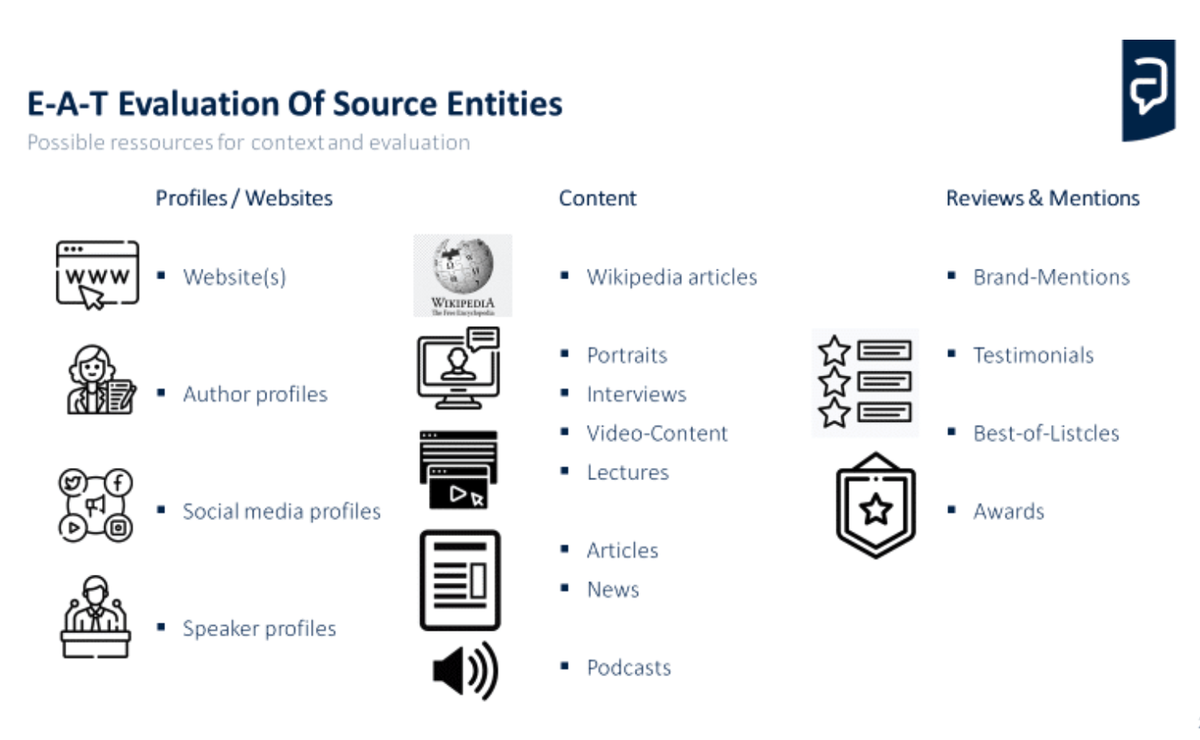Served up some great content lately?
Doctor Digital Says

In the world of search engine optimisation (SEO), Google constantly refines its algorithms to provide users with the best possible search results. One of the essential frameworks Google uses to evaluate content quality is E-E-A-T, which stands for Experience, Expertise, Authoritativeness, and Trustworthiness. As Google becomes more sophisticated in ranking websites, content creators and SEO professionals need to understand and incorporate E-E-A-T principles into their strategies.
In this blog post, we’ll break down what E-E-A-T is, why it matters for SEO, and how you can create content that aligns with Google’s E-E-A-T standards to improve your search rankings.
What is E-E-A-T?
E-E-A-T is an acronym introduced by Google to guide its Search Quality Raters in evaluating the quality of search results. Here's a breakdown of each component:
- Experience: This was a recent addition to E-E-A-T, recognising that users value content created by individuals with real-world experience on a topic. Experience reflects firsthand knowledge, practical application, and lived expertise. For example, a review of a product from someone who has used it offers more value than from someone who hasn't.
- Expertise: This refers to the depth of knowledge or skill in a specific subject. Content creators need to demonstrate that they have substantial knowledge in the field they're writing about. This is particularly important for industries like health, finance, or law, where inaccuracies can have serious consequences.
- Authoritativeness: This measures the reputation of the creator, website, or content source within the industry. Authoritative content is created by individuals or organisations that are considered experts in their field by peers, influencers, and users. External factors such as backlinks, citations, or endorsements from other reputable sources can elevate a website’s authority.
- Trustworthiness: Trust plays a crucial role in Google’s ranking system. Users need to feel confident that the content they’re consuming is accurate, reliable, and honest. Trustworthiness can be demonstrated through transparent policies, fact-checked information, and secure user experiences (e.g., SSL certification for websites).
Together, these elements help Google determine which websites should rank higher in search results, especially for queries where information quality and accuracy are vital.
Why E-E-A-T Matters for SEO
Google’s goal is to deliver high-quality, relevant, and trustworthy information to its users. In an era of misinformation and low-quality content flooding the internet, E-E-A-T provides a standard for evaluating which sources deserve visibility in search engine results pages (SERPs).
E-E-A-T is particularly important for 'Your Money or Your Life' (YMYL) topics. These are subjects that can significantly impact a user’s happiness, health, safety, or financial stability. Google holds YMYL content to higher standards because inaccurate or misleading information in these areas can have far-reaching consequences.
For example:
- A blog about medical advice must demonstrate expertise and trustworthiness because incorrect information could harm users.
- A financial planning website should be authored by credible professionals to ensure it offers sound advice.
Even if your site doesn’t fall within YMYL, adopting E-E-A-T principles can still improve your rankings. Google is increasingly using this framework across the board to assess content quality, so aligning with E-E-A-T will benefit any type of website.
How to Create Content Using E-E-A-T Standards
Now that we understand what E-E-A-T is and why it’s important for SEO, the next question is how to incorporate these principles into your content. Here are actionable strategies to improve each component of E-E-A-T:
1. Build on Real-World Experience
Experience is key to establishing authenticity and relevance. Whether you're writing a how-to guide, a product review, or an informative article, make sure your content reflects practical experience. For instance:
- Share personal anecdotes or case studies to illustrate your points.
- Include screenshots, photos, or videos of real-life use cases to build credibility.
- Leverage guest posts from individuals with real-world experience if you lack it yourself.
2. Showcase Expertise
Expertise comes from both knowledge and credentials. To boost your content’s expertise:
- Clearly highlight the credentials of the author. For example, if the writer is a licensed physician or a certified accountant, make sure their bio reflects this.
- Link to external sources or studies to support claims, demonstrating that the information is well-researched.
- Focus on in-depth, long-form content that addresses key questions comprehensively. Shallow or surface-level content will not demonstrate expertise.
3. Build Authoritativeness
To establish authoritativeness in your field:
- Develop a consistent content strategy that covers your industry comprehensively, positioning your website as a go-to resource.
- Encourage other authoritative websites to link back to your content. This can be done through guest posting, collaborations, or organic link-building strategies.
- Participate in industry events, webinars, or podcasts to gain recognition from peers and influencers in your field. The more you appear in reputable places, the more Google will see you as an authority.
4. Foster Trustworthiness
Trustworthiness goes beyond having factual information. It’s about creating a transparent and user-friendly environment:
- Ensure your website has an SSL certificate (HTTPS), as Google prioritises secure sites.
- Implement clear policies on your site, such as privacy, terms of use, and editorial guidelines, which build trust with users.
- Be transparent about the sources of your information and link to reputable third-party references when making factual claims.
- Encourage user reviews and testimonials, especially if you run an e-commerce site, as they provide social proof of your product or service’s reliability.
Additional Best Practices
- Author Bios: Make sure each article has an author bio that includes credentials and relevant experience. This signals to both Google and users that the content is created by a qualified individual.
- Fact-Checking: Regularly review and update your content to ensure it remains accurate and trustworthy over time. Outdated or incorrect information can quickly diminish your E-E-A-T score.
- Engagement: Encourage user interaction by allowing comments, answering questions, or engaging with your audience on social media. This shows that you are an active and responsive content creator.
Incorporating E-E-A-T principles into your SEO strategy is no longer optional if you want to rank well on Google. Whether you’re creating blog posts, product reviews, or expert guides, aligning your content with Google’s expectations for Experience, Expertise, Authoritativeness, and Trustworthiness will set you up for long-term success. By focusing on these four pillars, you can build both user confidence and search engine visibility, ultimately driving more organic traffic to your site.


